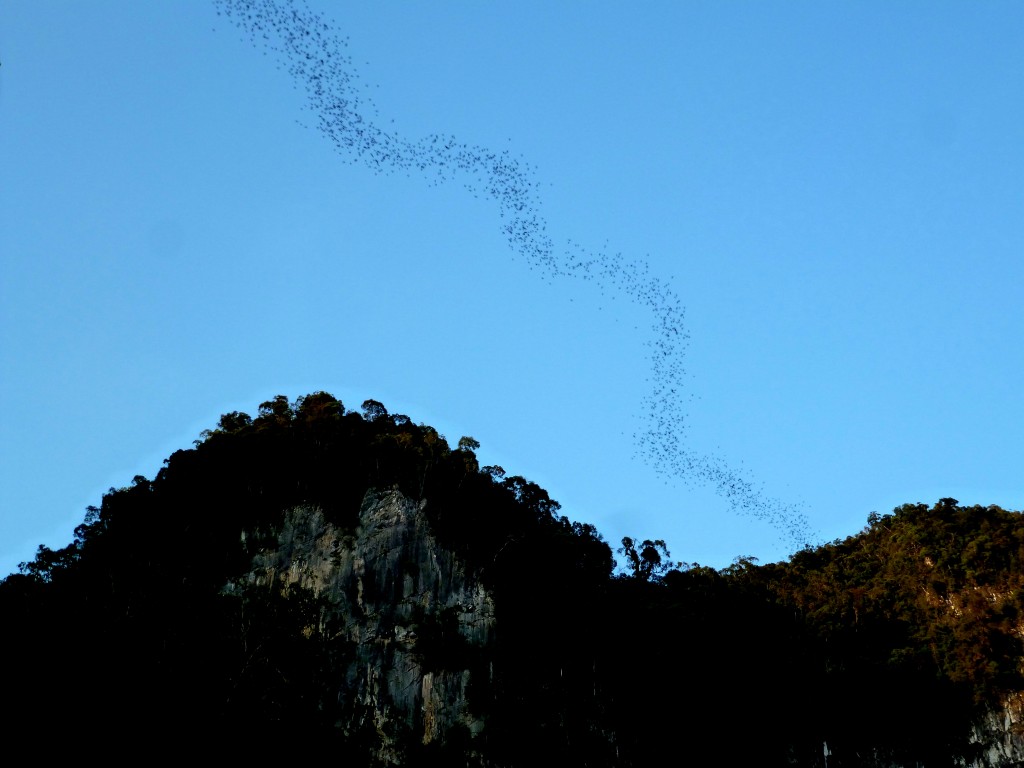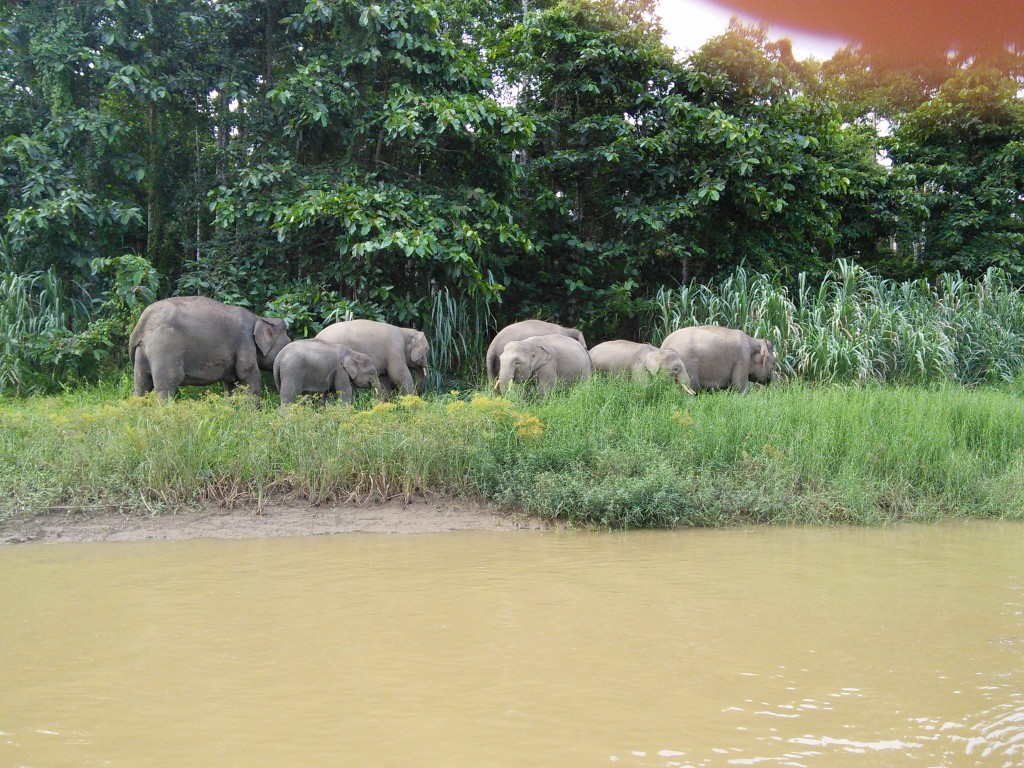Jul
2014
Unplugging was not that bad after all…
As many of you know, my wife and I spent a couple of weeks in Malaysia. One of the things I knew going in was that we were going to spend a week in Malaysian Borneo and that the internet connection would be essentially non-existent. I was very concerned about my own well being under those conditions.
I am happy to tell you that we survived being unplugged. The reason was that the unplugging was only for the first three days and even during that time, I could go to a cafe in the rainforest and after many retries, at least get to read my email.
I know that many of you feel I am crazy to be checking email on my vacation. Guess what, we are absolutely fine with it and we still enjoy our vacations tremendously. The added advantage is that I don’t have a mound of email to deal with when I get back. Anyways, these are personal preferences that we don’t have to go into.
Our first stop in Borneo was Gunung Mulu national park. It is a rainforest with some of the most impressive and massive caves. We spent three days there. We walked a lot in humid and hot conditions, took a night walk and saw some insects. However, our imagination of what a rainforest would be turned out to be very different from what it really is. For one, there was no rain for three days and though you could hear a lot of bird sounds, we did not see many of them. The canopy walk was interesting and a very early morning walk up a watch tower with a newly bought pair of binoculars yielded pretty much nothing. Nope, you can’t blame it on my inexperience with the binoculars. A gentleman from Holland who accompanied us has a lot of experience and he reminded us that these are not “sure shots”.
 Since we did not see many birds, we were skeptical when our guide talked to us about a million or so bats that leave the caves between 5 and 6 every evening to go find food in places as far as Brunei and get back at 4 -5 AM. So, when we gathered along with several others that we have seen in the park and chatted with, we sensed the same pessimism amongst the others. However, soon after 5 PM, we began seeing these bats come out of the caves in such beautiful harmonic waves in batches. After a few batches, there was a pause and some people began to leave. But then started a wave that lasted for over 30 minutes. Just amazing! What you see in the picture here is part of that wave. Obviously they were flying way high. This was a true treat!
Since we did not see many birds, we were skeptical when our guide talked to us about a million or so bats that leave the caves between 5 and 6 every evening to go find food in places as far as Brunei and get back at 4 -5 AM. So, when we gathered along with several others that we have seen in the park and chatted with, we sensed the same pessimism amongst the others. However, soon after 5 PM, we began seeing these bats come out of the caves in such beautiful harmonic waves in batches. After a few batches, there was a pause and some people began to leave. But then started a wave that lasted for over 30 minutes. Just amazing! What you see in the picture here is part of that wave. Obviously they were flying way high. This was a true treat!
In Mulu, there was absolutely no internet connection right from the airport. However, I found out that through the feeble signal for phone, I was able to text from a couple of locations. So I let the family know that they can try to text me if needed.
When we registered, we were informed that we can purchase internet at the cafe there for 5 RM (about $1.65) a day. There were a lot of caveats – it is satellite based, so unreliable, it is slow and depending on how many others connect, you may see further slowness – which were all true! However, whenever we went to the cafe to grab some food, we were able to check emails.
The problem with smartphones these days is that once they see a connection, they grab the connection to do a whole bunch of other things than just check emails. For eg. my phone started downloading updates to apps! It was constantly failing, of course, because of lack of bandwidth. This meant I saw a lot of icons on my phone that I needed to clear every time. These are minor bur real irritations. The tendency to pick up the phone and check for emails while walking in the middle of the rainforest happened initially, but slowly you weaned yourself from that habit because it didn’t magically make the connections appear!
When we went to Sandakan area to visit Sepilok where there is an Orangutan sanctuary, connection was not a problem at all. Similarly, when we drove to Bilit Lodge in the banks of Kinabatangan River for a day, we had connections all through. It is when we reached the Lodge, we lost the connection because it is in the middle of nowhere. But, the connection was sporadic and we had emails downloaded on a periodic basis.
All through this, connection or no connection, we thoroughly enjoyed our visit to these remote locations and bonded with nature.
I also learned a few lessons along the way. Patience is a virtue that will come in handy when you visit these places. It took a very long time before we would encounter a flower or an insect (beautifully camouflaged and therefore hard to detect). There was no on demand version! When we went to see the pygmy elephants ( a picture of which I have attached at the beginning), we were constantly reminded by the guide not to be disappointed if we don’t see any that day! We happened to be lucky (or may be this is what the guides tell everyone). You also appreciate the wonders of nature and the variety. We have traveled a fair amount and have seen so many different forms of caves, but Mulu caves are so unique and marvelous, unlike any we have seen.
The intricacies of life in these places continues to fascinate me. In the rain forest we visited, the lack of animals was explained by the fact that they didn’t have much to eat. These rain forests have a lot of vegetation and tall trees, some bearing fruits. That’s not enough to have a rich ecosystem of fruits, vegetables and animals which are interdependent. The birds hung around in strategic locations – where there were fruits to eat and where they can hide from other predators (birds, in this case). We saw eagles waiting in strategic locations to grab a bat or two that lost their way (echolocation failure!) for dinner. They obviously know when the bats leave every day. We saw some massive hornbills that are more fearsome than an eagle. And finally, how, as humans, we look to disrupt the lives of everything, including other humans.
One of the caves we visited in Sabah is co-inhabited by small birds and bats. They have found out that the bird nests are favorite food for some people in East Asia. They are made up of the saliva of the birds and they harden over time. The government of Malaysia has hired many to harvest these nests after the newborn birds have moved out of the nests. These bird’s nests can fetch anything from $500 – $2000 per kg depending on its color and they make a soup out of it.
So, the complete unplugging happened on the plane. This is so frustrating to me. Hopefully one of these days, they will find a way to connect international flights to the real world. Reading and watching movies is fun, but both of these can be even more fun if I am connected…
